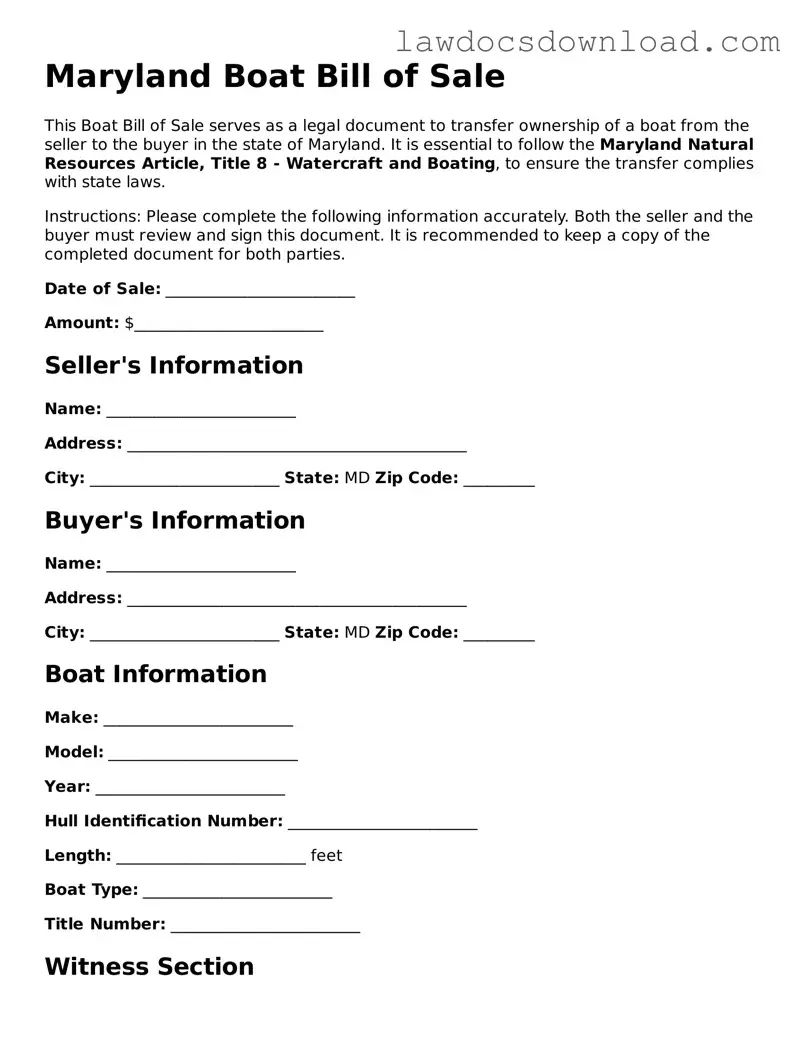Legal Maryland Boat Bill of Sale Form
The Maryland Boat Bill of Sale form serves as a legal document evidencing the transfer of ownership of a boat from the seller to the buyer within the state of Maryland. This form is critical in establishing the transaction's details, including the parties involved, the sale price, and the boat's specific information. It plays a pivotal role in the registration process, making it an essential document for both buyer and seller.
Launch Boat Bill of Sale Editor Here

Legal Maryland Boat Bill of Sale Form
Launch Boat Bill of Sale Editor Here

Launch Boat Bill of Sale Editor Here
or
Free Boat Bill of Sale
Get this form done in minutes
Complete your Boat Bill of Sale online and download the final PDF.